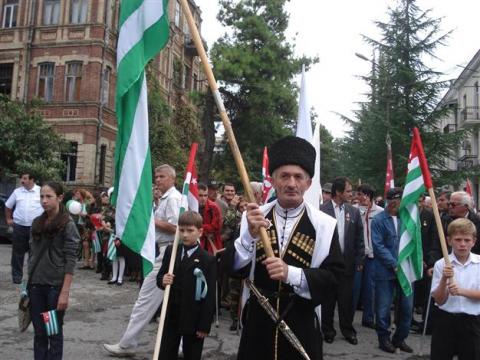The Circassian diaspora in Turkey

'The Circassian Diaspora in Turkey: A Political History' by Zeynel Abidin Besleney (Routledge, 224 pages, £84)
In the list of ethnicities he likes to recite in speeches praising Turkey's multicultural richness, President Recep Tayyip Erdo?an always gives a shout out to Circassians. Unlike the Christian minorities that are routinely ignored in Erdo?an's public rallies, referring to Circassians carries no political cost. Circassian identity has a fairly low profile in Turkey and Circassian-origin Turks tend to have a fairly limited "national consciousness."
The Circassians first came to Anatolia in significant numbers during the 19th century, when up to a million were forced out of their homeland in the North Caucasus by the Russian Empire. Never having the strength to bring together the ethnicities of the largely Sunni Muslim North Caucasus as a united state, Circassia as a country ceased to exist. Hundreds of thousands of Circassians were killed or died, and their land - emptied of its native inhabitants - was offered to ethnic Russians and Cossack settlers. Some people today refer to the events of 1859-64 as the first modern genocide.
The vast majority of survivors found refuge across the Black Sea in the lands of the Ottoman Empire. The many tribal and ethnic groups arriving from the North Caucasus fitted into the multinational Ottoman patchwork, which accommodated Circassianness without imposing an obligation to assimilate. Estimates vary, but today there are thought to be around 2-3 million citizens of Circassian origin in Turkey, and many from the community have risen to the highest stations in the Ottoman Empire and the Turkish Republic. Many Circassians played a key role on the ground in the massacres of Ottoman Christians in 1915...
- Log in to post comments









